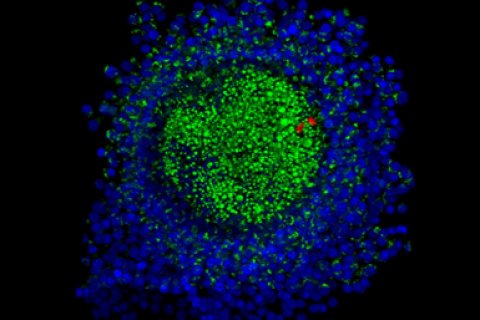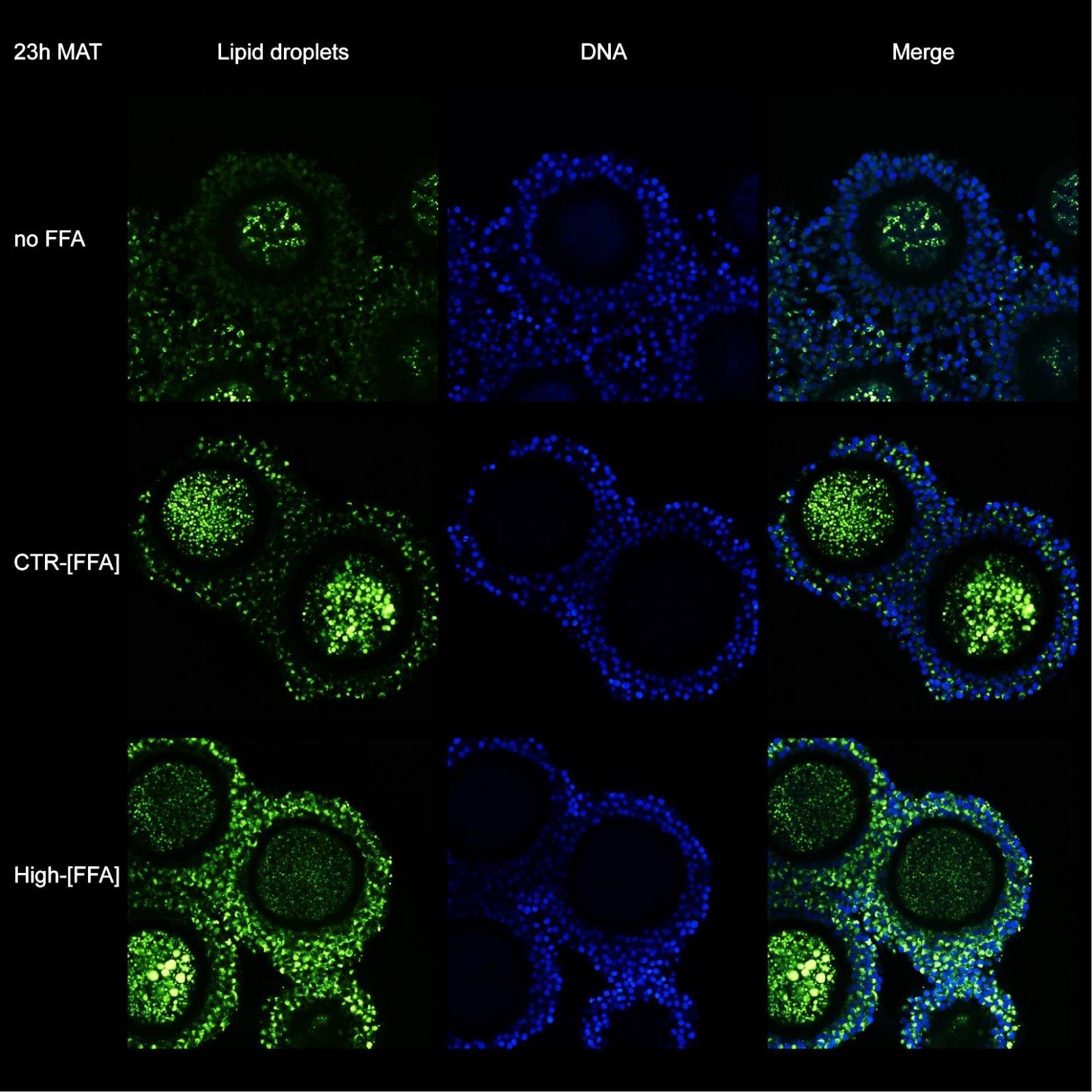Metabolism and fertility
Understand how maternal metabolism affects fertility and embryo development

The oocyte is the largest cell and resides during a long time in the female body. Recent research demonstrates that metabolic stress of the mother can have a huge impact on the quality of the oocyte and embryo.
During metabolic stress conditions, like obesity in women or the negative energy balance in the cow, the body mobilizes fat reserves resulting in elevated levels of free fatty acids (NEFAs) in the blood.
Impact on oocyte and embryo
Elevated concentrations of NEFA are also reflected in follicular fluid and reach the oocyte and presumably the embryo. We investigate the impact of these and other metabolites on the oocyte and embryo.
Former studies have demonstrated the distinct impact of saturated versus unsaturated NEFA on the cumulus-oocyte-complex and the protective role of the cumulus cells that surround the oocyte. In the presence of elevated levels of NEFA cumulus cells protect the oocyte against lipotoxicity by save storage of fatty acids in lipid droplets and desaturation of potentially toxic saturated NEFA.
Metabolic stress and diet
Currently we are investigating how the oocyte, during earlier stages of development when cumulus cells are not yet present, and the embryo in the oviduct are affected by metabolic stress and whether the diet can sustain a healthy environment for the developing oocyte and embryo.



